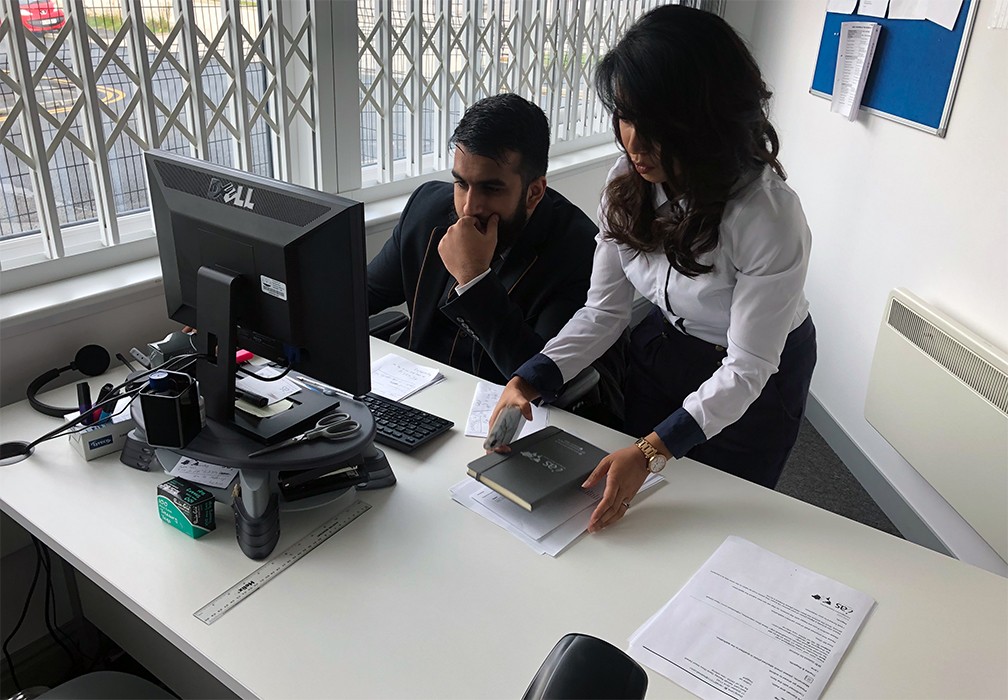Starting a Business in the UK as a Foreigner
The United Kingdom is the fourth-best country in the world for entrepreneurs, according to the US News & World Report, and this reputation has encouraged many to set up their business in the UK. However, establishing a UK business is a complex process, especially if you are a foreigner.
Total Law is perfectly positioned to help you create your business in the UK. If you want to get support, please contact us at 0333 305 9375 or visit us online if you want to learn more about our services.
Can I Start a Business in the UK as a Foreigner?
As the sixth richest nation in terms of GDP, scores of businesses start in the UK. Starting a business in the UK requires you to register with Companies House, HM Revenues and Customs (HMRC), and create a detailed business plan considering the business activities you want to carry out in the UK.
Moreover, you will also need to fulfil a range of personal requirements when you establish your business, as you will need a visa. A visa will allow you to migrate to the UK and run your business legally.
This article takes you through the complex process of legally starting and operating a UK business as a foreigner.
Business Visas: Do I Need a Visa to Start a Business in the UK as a Foreigner?
The first complexity to consider is getting a business visa, which will give you the right to come to the UK to start a business. However, there is not a single visa that you need for this purpose. Instead, you must apply for one of three visas, depending on which is most suited to your purposes. You can learn more about them in the section below.
Innovator Founder Visa
This visa is designed for foreign entrepreneurs who believe they have a unique business idea to bring to the UK. This visa has eligibility requirements that aim to ensure the business will be a success, which include the following:
- You must have access to investment funds and can demonstrate that they have been raised in a legal way.
- Your business idea is endorsed by a body that has been approved by the UK government.
There are also some personal requirements that you will need to be able to demonstrate. These are as follows:
- You have had at least £1,270 in your account for the past 28 days as of the date of the initial visa application, demonstrating that you can support yourself.
- You must have English language abilities at a B2 CEFR standard. This is an advanced level of English where you can have spontaneous and complex conversations.
During your application, you will need to pay a fee of £1,274 and an endorsement fee of £1,000.
Global Talent Visa
The final visa category allowing you to migrate to start a UK company is the Global Talent visa. This applies to leaders in academic research, arts, culture, and digital technology, giving these experts the freedom to start UK businesses. This visa will last for five years.
In some cases, you will need an endorsing body to write you an approval letter. This will cost you £561.

Business Types in the UK
Overview
Alongside your visa application, you will also need to start planning your business in the UK. This all begins with deciding which type of business you will run. This decision will have an impact on your business operations and its legal and taxation requirements. It will change whether you pay income tax, corporation tax, or capital gains tax. The section below will introduce you to the four types of business to help you make your decision.
Sole Trader
Sole traders operate the most simple type of business in the UK. They own and run the business in the UK themselves as the only employee. Therefore, the business’ tax liability falls directly on the owner, and they will be taxed as part of the owner’s income tax.
Partnership
In a partnership business structure, two or more business people will come together to found and run a UK business. In a general partnership, every partner is responsible for the business’s debts and liabilities. The partnership is treated as one entity rather than multiple entities.
Limited Company
A limited company is a separate legal entity from its founder. This is a complex UK business structure whereby the owner and shareholders have limited liability and are protected from the business’ debts and liabilities.
A limited company also must abide by much stricter reporting and governance requirements. It will need to register with Companies House and give them annual financial statements. As such, the UK business will need to pay corporation tax, and any shareholders will pay income tax on any dividends they receive.
Limited Liability Partnership (LLP)
An LLP combines a partnership with a limited company. It gives protection to the partners working within it, granting them limited liability. Similarly to a partnership, an LLP must also register with Companies House and will pay corporation tax. However, the income generated will be taxed as part of the individual member’s personal income.
Setting up a Business in UK as a Foreigner: Step by Step
Overview
Obtaining a visa and deciding which type of UK business you will run is only the first step to starting a business. There are a range of other factors to consider, which include the following:
- Rules, licences, and permits.
- Establishing a business headquarters.
- Staffing.
- Registering with Companies House.
Rules, Licences and Permits
In the UK, all industries have unique rules that govern them that apply regardless of your business structure. This includes licences and permits, which must allow you to legally conduct your business activity. It is also worth remembering that you may need licences and permits which are not specific to your industry. For example, you will likely need a permit if you have a public space, such as a shop, and want to play music.
You also have rules that you must follow based on your interactions with customers and other businesses. There are separate rules you must follow based on your sales of goods online and your buying and selling of goods abroad. Furthermore, if you will store people’s personal information, you must abide by UK GDPR data protection rules.
In most cases, you will also need public liability insurance. This insurance will protect you against injuries and damages claims made against your UK business.
Establishing a Business Headquarters
As a new business in the UK, you can choose to operate from home or from a separate address. Both options come with separate responsibilities.
If you run your business from home, you will need to get permission from your mortgage provider or landlord. Moreover, you will need permission from the local planning office for any home alterations you need to make and from the local council if you will be receiving large deliveries. Finally, please be aware that UK home insurance does not normally cover business assets such as your stock or equipment. You may need employers liability insurance.
Meanwhile, if you rent the property that you will run your business from, you will need to carry out a risk assessment for the property and take action to reduce risks. You will be responsible for fire, gas, and electrical safety and managing asbestos risks. Failure to follow health and safety rules could lead to your prosecution under the Health and Safety at Work, etc. Act 1974.
In both cases, you may have to pay business rates on the property that you use for your business. You can find out the business rates you need to pay depending on your business structure, size, and more from the Valuation Office Agency (VOA).
Staffing
Most business in the UK is conducted with the help of staff, whether that is employees, freelancers, or agency workers.
Your responsibilities for your staff will be more expansive if you are formally employing them. You will need to run a payroll, provide pensions, and pay for your staff’s national insurance.
Whichever type of staff you employ, you will have to make sure that you are looking after their welfare. You must do so by providing the following:
- A comfortable temperature.
- Space, ventilation, and lighting.
- Toilets and washing facilities.
- Drinking water.
- Safe equipment.
Registering with Companies House
As has been seen, your limited liability partnership or limited company will need to register with Companies House. This process has multiple stages which you must follow carefully, including the following:
- Choose your business type and structure from the options mentioned earlier in this article.
- Pick a unique name that is not already on the companies register.
- Enter key company information, including your registered office, directors, and shareholders.
- Allocate shares to each shareholder, defining the amount of the company each shareholder owns.
- Complete your Memorandum and Articles of Association, which will define the way in which your company will be run.
Having gathered all of the information together, you will be ready to hand it over to complete your registration.

How Can Total Law Help?
As this article has shown, starting a business in the UK can be a challenging process. It will require you to liaise with immigration authorities, Companies House, HMRC, and more.
Total Law is positioned to help you to start a business legally and effectively. Our corporate immigration lawyers are experts in dealing with immigration and business affairs and can help you to complete the range of applications that will be needed during this process.
If you want our help, please contact Total Law at 0333 305 9375 or contact us online.
Advice Package
Comprehensive immigration advice tailored to your circumstances and goals.
Application Package
Designed to make your visa application as smooth and stress-free as possible.
Fast Track Package
Premium application service that ensures your visa application is submitted to meet your deadline.
Appeal Package
Ensure you have the greatest chance of a successful appeal. We will represent you in any case.

The Advice Package
During this untimed Advice Session with our professional immigration lawyers in London, you will receive our comprehensive advice, completely tailored to your needs and your situation.

The Application Package
With our Application Package, your dedicated immigration lawyer will advise you on your application process and eligibility. Your caseworker will then complete and submit your forms to the Home Office on your behalf.

The Fast Track Package
Our Fast-Track Application Package is a premium service for those who need to submit their application in time with their deadlines. Your case will become a top priority for our lawyers and you will benefit from our highest-quality services.

The Appeal Package
By choosing our Appeal Package, you can rely on our lawyers’ legal knowledge and experience to ensure you have the highest chance of a successful appeal. We will also fully represent you in any hearings/tribunals.
Related pages for your continued reading.
FAQs
If you have an overseas company, you may not want to start a new company in the UK, choosing instead to register a branch in the UK. This will allow you to have a launch pad to start working in the UK market, requiring you to have a permanent UK representative with full authority to make deals and sign documents on the business’s behalf.
The first step is to register your branch with Companies House as you would if you were starting a new business. Note that any documents relating to the business will need to be translated into English.
Once your registration is complete, you can open your office in the UK. This must stay open for at least a year, and you will need to inform Companies House of any changes that occur during the year.
Foreign workers will be able to join your UK business or branch. However, your employee will require a work visa, and in most cases, they will need a Certificate of Sponsorship to obtain this. This essential prerequisite is an electronic document with a number that your prospective hire will need when applying for their visa.
You are able to sponsor a range of different types of work visas. This varies from permanent skilled workers to temporary leadership members coming to help establish the business.
UK Businesses don’t have an automatic right to sponsor foreign workers and will require a Sponsorship Licence. Most new UK businesses will need to pay the lower fee of £536 for small businesses to get a Sponsor Licence.

